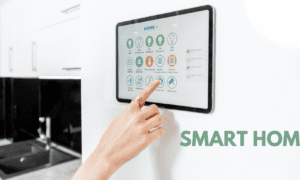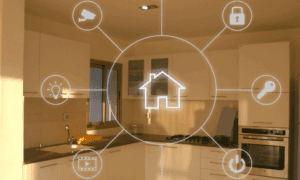In today’s quickly growing numeral land, Smart home skills have developed as an ideal of invention, altering how we network with our living chairs. However, among the ease and treatment these spreads offer, it’s bossy to confirm inclusivity. That’s where Smart home skill solutions for greater openness come into play. This article digs deep into the land of nearby smart homes, travelling the tasks faced by folks with frailties and the transformative results that allow them to lead-free lives flawlessly. Let’s direct the joint revolution and inclusivity in clever home knowledge.
Navigating Accessibility Barriers in Smart Homes
The Impact of Accessibility Challenges
Smart home technology, while talented in handiness and efficacy, often presents open trials for persons with infirmities. These tests can range from bodily walls to mental and physical damages, delaying whole contact and control within the home setting.
Overcoming Mobility Limitations
For people with movement damage, normal tasks like altering room fever can be inspiring. Smart home technology offers unified answers, allowing users to control their settings with comfort. mobility scooters improve liberty by helping easy drive within the home. The addition of smart home schemes further lifts self-rule, letting users manage devices readily. Together, these spreads revolutionise openness and freedom for persons with movement losses.
Enhancing Visibility for All
Visual injuries can make it hard for people to network with outdated home plans that trust deeply in graphic cues. Smart home answers present skins intended to make borders more nearby and natural for users with graphic hurts, endorsing inclusivity in every contact.
Smart Home Solutions Pioneering Accessibility and Inclusion
Voice-Activated Assistants A Gateway to Independence
Smart home helpers like Amazon Alexa and Google Junior help as innate borders for folks with movement or skill tasks. By retorting to voice orders, these aides allow users to control their settings readily, endorsing freedom and convenience.
Securing Access with Smart Locks and Doorbells
Keyless entry and video doorbell structures make clever locks and bells available to personalities with suppleness limits. These structures offer added safety and handiness while removing bodily walls to entry, promoting a sense of security and self-rule.
Monitoring Safety Alerting with Accessibility
Smart devices prepared with availability structures deliver real-time signals and warnings to users, certifying their care and well-being. These checking answers offer amity of mind for individuals with frailties and their caregivers, pretty care and helping free living
Implementation Considerations Making Accessibility a Priority
Seamless Integration for Enhanced User Experience
Confirming compatibility and addition amid smart home plans is vital to making a solid and available system. By picking friendly goods, users can augment their smart home practice without meeting compatibility issues, promoting whole contact and regulator.
Personalizing Technology to Individual Needs
Providing customizable settings allows users to brand their smart home practice giving to their sole favourites and foods. Customization options improve usability and convenience for persons with frailties, confirming that every contact is couturier to their exact needs.
Ensuring Access for All Addressing Cost Barriers
Affordability can be an important wall to reading smart home equipment, especially for entities with frailties. Affordable valuing options and money plans can help make these skills more handy and impartial for all users, confirming that no one is left late in the pursuit of freedom and addiction.
Studies in Accessibility
Smart Home for Wheelchair Users
By including available features such as voice-activated panels and smart devices, a smart home was altered into a more complete setting for wheelchair users and electric wheelchair users. These changes higher freedom and availability at home, investing users to direct their settings with ease
Smart Home for Visually Impaired Individuals
Through the operation of smart light systems and voice-controlled plans, a smart home was handmade to meet the sole needs of visually deceased individuals. These availability features improved steering and usability, allowing users to live more freely and surely within their homes.
Future Trends Advancing Accessibility in Smart Homes
Pushing the Boundaries of Accessibility with Assistive Technologies
Ongoing novelties in wearables, haptic response devices, and brain-computer borders hold the capacity for more pretty handiness in smart homes. These growths aim to run more innate and whole relations for users with frailties, forceful the limits of inclusivity and origination.
Personalised Experiences through AI and Machine Learning
By leveraging AI and engine knowledge processes, smart home devices can forestall users’ needs and likings, pretty convenience and usability. These brainy systems learn and adjust over time, in case modified help to users with illnesses, and certifying that every contact is tailored to their specific needs and favourites.
Promoting Inclusivity through Standards and Regulations
The development of general design values and availability ideals is important for confirming inclusivity in smart home expertise. By observing to these ideals, creators can create products that meet the diverse needs of users with disabilities, fostering a more handy and broad coming for all
Conclusion
In conclusion, Smart home equipment resolutions are altering openness, approving entities with frailties to lead more sovereign and complete lives. By considering the single trials they face and applying couturier results, we can produce smart homes that arrange availability and inclusivity, confirming that everybody can profit from the transformative probability of machinery. Let’s continue to prioritise convenience and work near a future where Clever home technology truly serves as an entrance to freedom and enclosure for all.




































